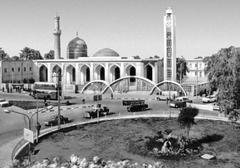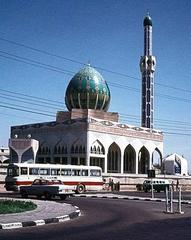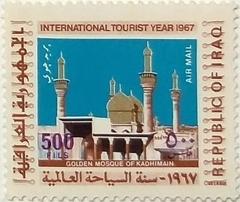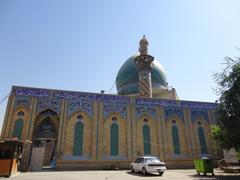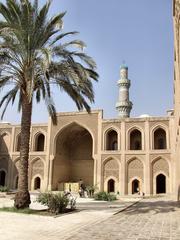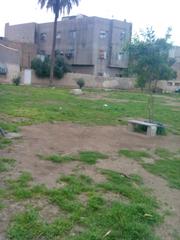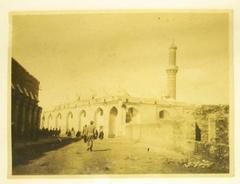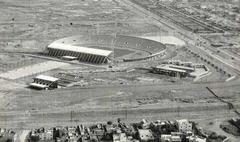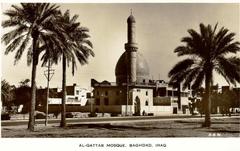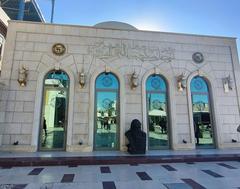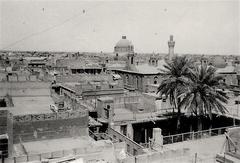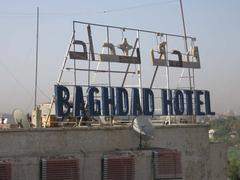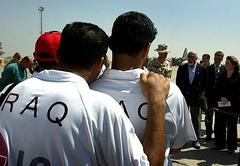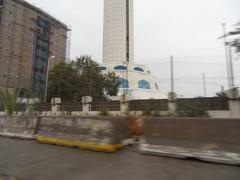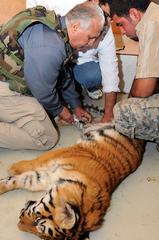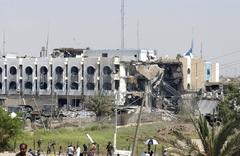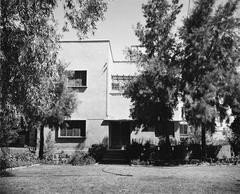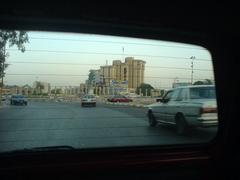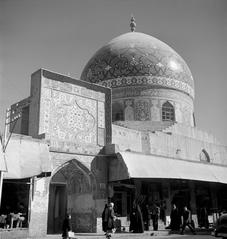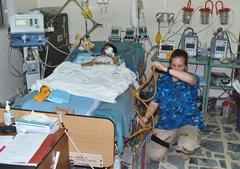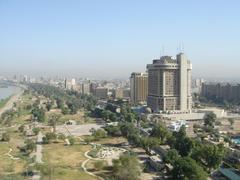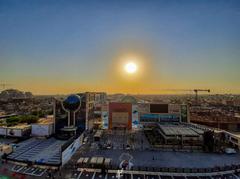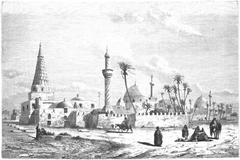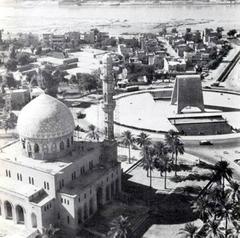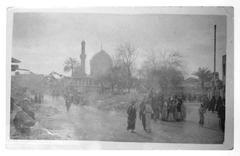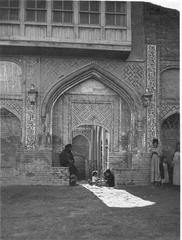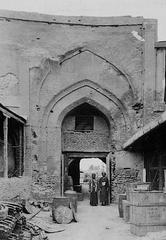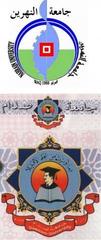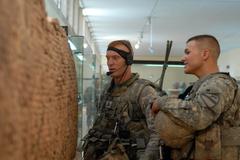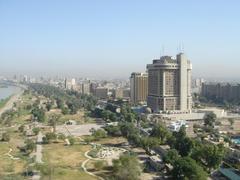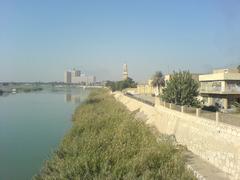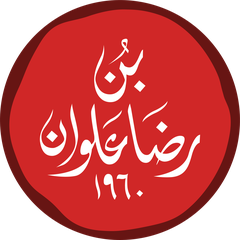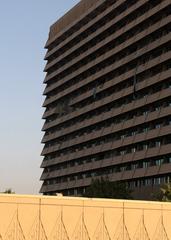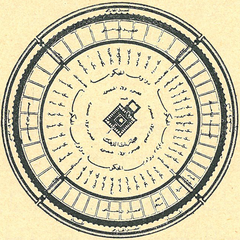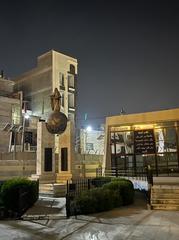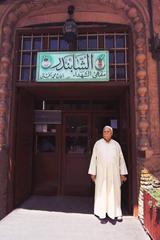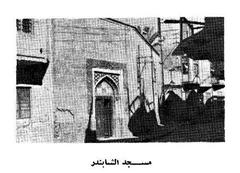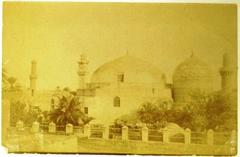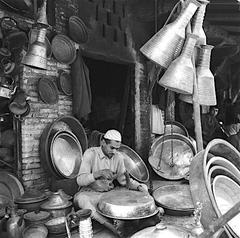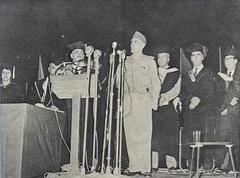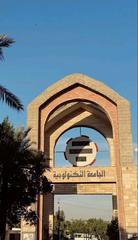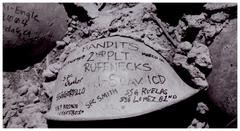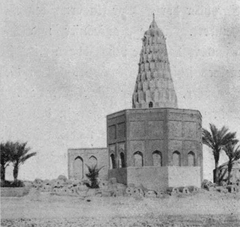Visiting Al Beiruty Café Baghdad: Guide, Tickets, Hours, and Tips
Date: 15/06/2025
Introduction to Al Beiruty Café and Its Significance in Baghdad
Al Beiruty Café is a cherished cultural landmark nestled in the heart of Baghdad, Iraq. Situated along the scenic banks of the Tigris River, this historic café embodies centuries of coffeehouse tradition and social vibrancy. As one of Baghdad’s oldest and most iconic cafés, Al Beiruty traces its origins to the 18th century, founded by Muhammad al-Beiruti, a Lebanese merchant. His legacy lives on in the café’s unique blend of Iraqi and Levantine hospitality (Wikipedia: Al-Beiruti Café).
Throughout its existence, the café has served as a gathering place for poets, intellectuals, artists, and everyday citizens—fostering lively debates on literature, politics, and social life. Its enduring presence testifies to Baghdad’s vibrant café culture, which originated in the Ottoman era and has since become a cornerstone of the city’s urban and cultural identity (Diva International; CN Traveller ME).
Visitors to Al Beiruty Café can expect an immersive experience. The venue combines traditional ambiance—wooden furnishings, antique brassware, and historical photographs—with modern comforts and a welcoming riverside setting on Abu Nawas Street. The café is open daily from early morning until late evening, offers free entry, and features a menu rich in Iraqi tea, Arabic coffee, and local delicacies, making it a favorite among both locals and travelers (Iraqi Tourism Board).
Its prime location also provides convenient access to notable Baghdad landmarks such as the Iraq National Library and Archive, Al-Zawra’a Stadium, and the historic neighborhoods of Bab Al-Moatham and Al-Wazireya. Whether you are a history enthusiast, cultural traveler, or simply a coffee lover, Al Beiruty Café offers a unique window into Baghdad’s social fabric and evolving hospitality scene (Wanderboat).
Contents Overview
- Introduction
- Origins and Evolution of Baghdad’s Café Culture
- The Emergence of Al Beiruty Café
- Historical Significance in Baghdad
- Visiting Al Beiruty Café: Hours, Tickets, and Practical Information
- Architectural and Cultural Features
- Notable Nearby Attractions and Suggested Walking Routes
- The Café in Baghdad’s Modern Renaissance
- FAQ
- Conclusion and Call to Action
Origins and Evolution of Baghdad’s Café Culture
Baghdad’s café culture dates back to the Ottoman era, with coffeehouses (maqha) first appearing in the 16th and 17th centuries. These spaces quickly became vital urban centers for poets, scholars, artists, and citizens, providing a blend of hospitality, intellectual exchange, and a strong sense of community (Diva International).
By the early 20th century, cafés lined Baghdad’s bustling streets such as Al Rasheed and Al Mutanabbi. These venues played a central role in the city’s cultural renaissance, often serving as informal salons for debates on literature, politics, and art (CN Traveller ME).
The Emergence of Al Beiruty Café
Continuing this storied tradition, Al Beiruty Café is located near important landmarks like Al-Zawra’a Stadium, the Iraq National Library and Archive, and Bab Al-Moatham (Mapcarta). While its exact founding date remains uncertain, the café’s name reflects cosmopolitan influences—especially from Beirut’s celebrated café culture—illustrating Baghdad’s historical openness to regional cross-cultural exchange.
Historical Significance in Baghdad
Cafés like Al Beiruty have long served as social institutions where generations gather to discuss current events, play traditional games such as dominoes and chess, and enjoy Arabic coffee and sweet tea. Through periods of political and social upheaval, these venues have remained resilient and integral to Baghdad’s collective memory (CN Traveller ME). In the 20th century, particularly around Iraq’s 1932 independence, cafés shaped public opinion and intellectual movements—a legacy that continues today.
Visiting Al Beiruty Café: Hours, Tickets, and Practical Information
- Visiting Hours: Open daily, generally from 8:00 AM to 11:00 PM. Check locally for updated hours during holidays and special events.
- Entry: Free—no tickets or reservations required.
- Accessibility: The café strives to accommodate all guests; those with specific needs should inquire directly or locally.
- Payment: Cash in Iraqi dinars is preferred, though some locations may accept cards. Prepare accordingly.
- Guided Tours and Events: While the café does not offer regular tours, local operators often include it in city heritage itineraries. Occasional cultural events and gatherings are hosted on-site (Wanderboat).
Architectural and Cultural Features
Al Beiruty Café shares features typical of Baghdad’s traditional coffeehouses—wooden furnishings, antique brass decanters, and walls adorned with historic photographs and portraits (Diva International). The sensory experience is enhanced by the aromas of coffee, tea, and shisha, as well as the sounds of lively conversation and traditional games.
Notable Nearby Attractions and Suggested Walking Routes
- Iraq National Library and Archive: Home to Iraq’s literary and historical treasures.
- Al-Zawra’a Stadium: A symbol of Baghdad’s sports culture.
- Bab Al-Moatham and Al-Wazireya neighborhoods: Rich in history and ambiance.
A suggested walking route: Start at Al Beiruty Café, proceed to the Iraq National Library and Archive, then continue to Bab Al-Moatham to experience the blend of cultural, historical, and urban life. The area is filled with additional cafés and shops for sampling local flavors and crafts.
The Café in Baghdad’s Modern Renaissance
Baghdad’s café culture is undergoing a revival, seamlessly blending tradition with modernity. Al Beiruty Café exemplifies this transformation, attracting a diverse range of visitors and contributing to the city’s growing hospitality scene (Iraqi News). It stands as a testament to Baghdad’s resilience and ongoing cultural renaissance.
Frequently Asked Questions (FAQ)
Q: What are Al Beiruty Café’s visiting hours?
A: Typically, 8:00 AM to 11:00 PM daily. Please check locally for updates.
Q: Is there an entry fee or ticket required?
A: No, entry is free.
Q: Is the café accessible for people with disabilities?
A: Accessibility options may be limited; inquire directly for current facilities.
Q: What payment methods are accepted?
A: Cash in Iraqi dinars is preferred; cards may be accepted at some locations.
Q: Are guided tours available?
A: The café itself does not offer regular tours but is often included in city heritage tours.
Q: Are there COVID-19 related policies in place?
A: Check locally for the latest health guidelines.
Conclusion and Call to Action
Al Beiruty Café is more than a coffeehouse—it is a living museum of Baghdad’s social and cultural fabric. Its rich history, welcoming atmosphere, and scenic riverside location make it a must-visit for anyone exploring Baghdad’s heritage.
For the latest updates on hours, events, and guided tours, download the Audiala app. Explore related articles on Baghdad’s cultural landmarks and follow us on social media for ongoing travel inspiration.
Plan Your Visit: Practical Tips at a Glance
- Currency: Iraqi Dinar (IQD); cash preferred.
- Dress Code: Modest attire recommended.
- Language: Arabic; some English spoken.
- Wi-Fi: Varies; consider a local SIM card.
- Safety: Stay up to date; consider a guide.
- Best Time: Late afternoon/evening, October–April.
- Photography: Allowed; ask before photographing people.
- Smoking: Permitted indoors.
- Restrooms: Available; bring hygiene items.
Nearby Attractions and Suggested Itineraries
- Tahrir Square: Famed for public art and historical significance.
- Corniche: Perfect for riverside walks and city views.
- Al-Mutanabbi Street: A short taxi ride away, known for its bookstores and vibrant atmosphere.
Combine a visit to Al Beiruty Café with these sites for a comprehensive Baghdad experience.
Images
Sources
- Wikipedia: Al-Beiruti Café
- Diva International
- Wanderboat: Al-Beiruty Café
- CN Traveller ME
- Iraqi Tourism Board
- Iraqi News
